List of Contributors
Professor Randall K. Nichols (Managing Editor* / Author)
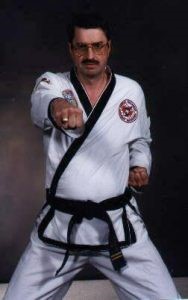
Randall K. Nichols is Professor of Practice in Unmanned Aircraft Systems (UAS) – Cybersecurity at Kansas State University Polytechnic (KSUP) in Salina, Kansas. Nichols serves as Director, graduate UAS- Cybersecurity Certificate program at KSUP. Nichols is internationally respected, with 50 years of experience in leadership roles in cryptography, counterintelligence, INFOSEC, and sensitive computer applications. Throughout his career, Nichols has published ten best-selling textbooks. Nichols has provided counsel to the United States government and is certified as a federal subject matter expert (SME) in both cryptography and computer forensics. His most recent work involves creating master and certificate graduate – level programs for KSU and Utica College. To wit:
Author/ Developer: MPT/ MS / Certificate in Unmanned Aerial Systems (UAS) -Cybersecurity
- Author/ Developer: BS Unmanned Aerial Systems (UAS) -Cybersecurity
- Retired Chair and Program Developer: MS – Cybersecurity –Intelligence and Forensics
- Retired Chair and Program Director: BS – Cybersecurity and Information Assurance
- Co-Author / Developer: MPS – Risk Assessment and Cybersecurity Policy
- Author / Developer: MS Cyber Surveillance and Warfare
Previously, Nichols was COO of INFOSEC Technologies, LLC, a consulting firm specializing in Counterterrorism, Counterespionage, and Information Security Countermeasures to support its 1700 commercial, educational and U.S. government clients.
Nichols served as CEO of COMSEC Solutions, a Cryptographic / Anti-virus / Biometrics Countermeasures Company, which was acquired by a public company in 2000. He served as Vice President of Cryptography and Director of Research of the acquiring firm.
Nichols served as Technology Director of Cryptography and Biometrics for the International Computer Security Association (ICSA), President, and Vice President of the American Cryptogram Association (ACA).
Nichols holds a 3rd Dan Black Belt (R) in Chung Do Kwan Tae Kwon Do and permanent rank of 2nd Dan Black Belt (D). He refereed the National Tae Kwon Do Championships in 1994 in San Antonio , TX.
This is Professor Nichols eleventh published book. Disruptive Technologies with Applications in Airline, Marine, Defense is Nichols’ 5th textbook as managing editor / contributor in the series on UAS /CUAS / UUV / special technologies all published by New Prairie Press. Others include:
Unmanned Vehicle Systems & Operations on Air, Sea, Land
New Prairie Press (published on October 2, 2020)
Available as free eBook at: https://www.newprairiepress.org/ebooks/35/
Counter Unmanned Aircraft Systems Technologies and Operations
New Prairie Press (published on February 1, 2020)
Available as free eBook at: https://www.newprairiepress.org/ebooks/31/
Unmanned Aircraft Systems (UAS) in Cyber Domain: Protecting
USA’s Advanced Air Assets,
New Prairie Press (NPP 2nd Edition published on July 26, 2019)
Available as free eBook at: https://www.newprairiepress.org/ebooks/27
Areas of Expertise / Research Interests
- Counterterrorism / Counter- Intelligence /Counterespionage / Computer Security
- Countermeasures Asymmetric Warfare and Attack / Defense Scenarios against National Critical Infrastructure
- Computer Forensics and Cryptography SME & Federal Expert Witness (Federal Criminal Cases: Treason / Espionage)
- Risk Assessment / Threat Analysis / Vulnerabilities Analysis / Countermeasures
- Cybersecurity / Surveillance Technologies: Aerial, Infrared, Visual, Ultraviolet, Radio, Radar & Sonar
- SCADA – Advanced Cyber-weapons Creation / Deployment / Deployment / Defense
- UAS- Integrating Unmanned Aircraft Systems into National Airspace System
- Designing Acoustic Countermeasures against hostile -actor UAS SWARMS & developing dual purpose IFF sound libraries.
Contact Prof. Randall K Nichols at 717-329-9836 or profrknichols@ksu.edu.
*Direct all inquiries about this book to Prof. Randall K. Nichols at profrknichols@ksu.edu
Dr. Hans C. Mumm (Co-Author)

Dr. Hans C. Mumm holds a Doctor of Management with a concentration in Homeland Security from Colorado Technical University (CTU) and an MS in Strategic Intelligence from American Military University (AMU). He gained notoriety during Operation Iraqi Freedom as the officer in charge of the “Iraqi Regime Playing Cards; CENTCOM’S Top 55 Most Wanted List” which was touted by the Defense Intelligence Agency (DIA) as one the most successful Information Operations (IO) in the history of Defense Intelligence Agency (DIA). Dr. Mumm is the former Division Chief for Cyber Security at the Office of The Director of National Intelligence (ODNI) programming and executing a budget of over $140M. Dr. Mumm has earned twenty-three personal military ribbons/medals including six military unit medals/citations, and two Directors Awards, from the DIA. In 2016 he was awarded the People of Distinction Humanitarian Award as well as being granted a US Patent and Trademark for How to Harmonize the Speed of Innovation and Change with the Human Spirit’s Need for Leadership. In 2005, Dr. Mumm was recognized as one of the “Ten Outstanding Young Americans,” and in 2003 he was awarded the National Defense PAC “American Patriot Ingenuity Award” for his service during “Operation Iraqi Freedom.”
He co-authored an international best-selling book titled “Lightning Growth” which is a follow up to his best-selling book in 2015 titled “Applying Complexity Leadership Theory to Drone Airspace Integration.”
He is a published researcher in both the scientific and social science arenas and has won grants and contracts to further test and evaluate his original research. He has notable experience in research and systems engineering which includes contracts for UAV research and the creation of an advanced multiple fuel system which operated the world’s first and only helicopter that can fly on five separate fuels without engine modifications. His research extends into emerging and disruptive technology for offensive and defensive missions supporting US and coalition operations. His UAV and robotics expertise has focused on determining the specific uses, exceptions, and allowances for robotics operations; including studying the unintended consequences, future use, and misuse of such technologies. Dr. Mumm’s presentations and publications support his research into autonomous systems in the virtual and physical worlds. Additionally, he serves as an adjunct professor at California University of Pennsylvania (CALU) instructing Homeland Security courses in the Criminal Justice Department.
Contact Information: Dr. Hans C. Mumm, 703-303-1752, hans@hansmumm.com. www.HansMumm.com
Wayne D. Lonstein, Esq. CISSP (Co-Author)
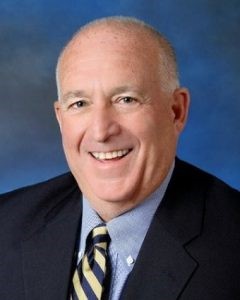
Wayne Lonstein holds a Bachelor of Arts Degree in Political Science from Wilkes University, a Bachelor of Science Degree in Cyber Forensics and Information Security from Syracuse University – Utica Collage, A Master of Science Degree in Homeland Security with a concentration in Information Security from The Pennsylvania State University and a Juris Doctor Degree from Pace University School of Law. Additionally, he holds a CISSP Certification from The Pennsylvania State University. He is a member of the state bars of New York, New Jersey, Massachusetts, and Pennsylvania as well as being admitted to over 30 United States District Court Bars, The Court of Veterans Appeals, United States Tax Court and the bar of the United States Court of Appeals of the 2nd, 3rd, and 5th Circuits.
In addition, Mr. Lonstein has practiced law nationally since 1987 in the area of technology, intellectual property, sports, and entertainment and has litigated over 2000 cases. He is also a member of the New York State Magistrates Association and has served as a Magistrate Judge in the Town of Wawarsing, New York since 1989.
He a member of Signal law PC, the Co- Founder and CEO VFT Solutions is a member of the Forbes Technology Council and has authored numerous articles including: “Why Industry and Government Leaders Need to Realize Vulnerabilities of the Cloud”
Published on June 16, 2017 on LinkedIn; ‘Identifying The Lone Wolf Using Technology,” on LinkedIn, Published on July 3, 2015; “Are Social Media Companies Using ToS And Safe Harbor To Profit From Infringement, Crime And Terror?,” Forbes.com, April 28, 2017; “Weaponizing Social Media: New Technology Brings New Threat,” Forbes.com, July 7, 2017; ‘Pay No Attention To That Man Behind The Curtain’: Technology vs. Transparency,” Forbes.com, October 17, 2017; and “Drone Technology: The Good, The Bad And The Horrible,” Forbes.com, January 10, 2018.
Dr. Julie J.C.H. Ryan, D.Sc. (Co-Author Books 1-4 in Series)/ Foreword Disruptive Technologies Book 5)

Julie J.C.H. Ryan, D.Sc., is the CEO of Wyndrose Technical Group, having retired from academia in 2017. Her last position in academia was Professor of Cybersecurity and Information Assurance from the U.S. National Defense University. Prior to that, she was tenured faculty at the George Washington University and a visiting scholar at the National Institute for Standards and Technology (NIST).
Dr. Ryan came to academia from a career in industry that began when she completed military service. Upon graduating from the U.S. Air Force Academy, Dr. Ryan served as a Signals Intelligence Officer in the Air Force, and then as a Military Intelligence Officer with the Defense Intelligence Agency. Upon leaving government service, she worked in a variety of positions, including systems engineer, consultant, and senior staff scientist with companies including Sterling Software, Booz Allen & Hamilton, Welkin Associates, and TRW/ESL supporting a variety of projects and clients.
She is the author /co-author of several books, including Defending Your Digital Assets Against Hackers, Crackers, Spies, and Thieves (McGraw Hill 2000), and a Fellow of the American Academy of Forensic Sciences (AAFS). At Wyndrose Technical Group, she focuses on futures forecasting and strategic planning with an eye on technology surprise and disruption.
Professor Candice M. Carter (Co-Author)

Ms. Candice Carter is a cybersecurity expert with over 15 years of hands-on experience in the areas of counterterrorism, counterintelligence, and criminal cyber investigations. She conducts Classified/Unclassified briefings in the areas of Terroristic Cyber Capabilities using Social Media and Counterterrorism for the Intelligence Community (IC). Ms. Carter conducts research and constructs Asymmetric Warfare and Attack / Defense Scenarios against National Critical Infrastructure. She is the Team Lead and for NASA Aeronautics Research Institute for Transformative Vertical Flight (TVF) Commercial Intra-City On-Demand VTOL group. Ms. Carter is an invited speaker for key organizations including BSides London and (ISC)2 Security Congress. She is an Assistant Professor/Chair MSc Cybersecurity program at the Wilmington University. Ms. Carter holds a MSc Cybersecurity Forensics and Intelligence from Utica College, Utica , NY and a PMT Cybersecurity UAS from Kansas State University.
Aris Theocharis (Co-Editor)

Aris has 30+ years of IT experience and earned a BS in Cybersecurity from Utica College, Utica, NY while working full time. He has provided editing skills for Professor Nichols for 10 years now. His approach is all encompassing, as opposed to strict grammar rules. Reading ease, topic flow, clarity, and being succinct are the focus.
Kurt Barnhart, Ph.D. (Associate Dean & Foreword to 1st Edition)
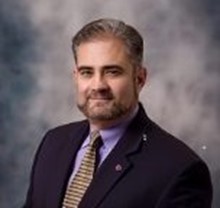
Dr. Barnhart is Professor and currently the Associate Dean of Research at Kansas State University Salina. In addition, he established and serves as the executive director of the Applied Aviation Research Center. He oversees the Unmanned Aerial Systems program office. Dr. Barnhart previously served as the Head of the Aviation Department at Kansas State University.
Dr. Barnhart is a member of the graduate faculty at K-State. He is eminently qualified with 1) a commercial pilot certificate with instrument, multi-engine, seaplane, and glider ratings; 2) a certified flight instructor with instrument and multi-engine ratings; 3) an airframe and power plant certificate with inspection authorization.
Dr Barnhart’s educational pedigree is outstanding: an A.S. in Aviation Maintenance Technology from Vincennes University, a B.S. in aviation administration from Purdue University, an MBAA from Embry-Riddle Aeronautical University, and a Ph.D. in educational administration from Indiana State University.
Dr. Barnhart’s Research agenda is focused on aviation psychology and Human Factors as well as the integration of Unmanned Aircraft Systems into the National Airspace System. His industry experience includes work as a R&D inspector with Rolls Royce Engine Company where he worked on the RQ-4 Unmanned Reconnaissance Aircraft development program, as well as serving as an aircraft systems instructor for American Trans-Air airlines. Formerly, Dr. Barnhart was an Associate Professor and Acting Department Chair of the Aerospace Technology at Indiana State University where he was responsible for teaching flight and upper division administrative classes. Courses taught include Aviation Risk Analysis, Citation II Ground School, King Air 200 Flight, Air Navigation, Air Transportation, Instrument Ground School, and many others.
CPT John-Paul Hood USA (Co-Author)

CPT John-Paul Hood is a researcher focused on the development of future counter unmanned aircraft technologies, theories and best practices for both government and civilian applications. CPT Hood has commanded in the US Army Field Artillery with a background specializing in the coordination and delivery of conventional / smart munitions as well as achieving desired battlefield effects through the integration of lethal and non-lethal assets. CPT Hood holds a BS in Geospatial Information Systems from the United States Military Academy, West Point NY, and a Professional Masters in Technology UAS from Kansas State University.
Dr. Alysia Starkey (CEO & Dean Kansas State University Polytechnic; 2nd Ed. Foreword)

Dr. Starkey is a Professor and currently serves as the CEO and Dean for the Kansas State University Polytechnic Campus. As Dean, she oversees the College of Technology and Aviation academic programs and campus research centers. Dr. Starkey holds an A.A. in Social Work from Colby Community College, a B.S. in Psychology from Fort Hays State University, a M.L.S. from University of North Texas, and a Ph.D. in Curriculum and Instruction from Kansas State University. Joining Kansas State Polytechnic in June 2002 as a technical services/automation coordinator and assistant professor, Starkey was promoted to library director and associate professor in 2007, and to assistant dean of continuous improvement and distance education in 2010. She was named associate dean of academics and promoted to full professor in 2014. She gained the additional duties of interim CEO and Dean in June 2018 and continues in that capacity today.
Joel D. Anderson Colonel USMC (Ret), OVPR, C-UAS Foreword
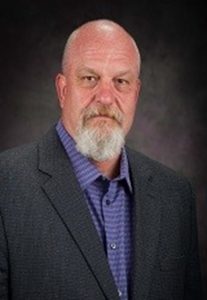
Mr. Anderson has more than 30 years’ experience in military, industry, and academia. He currently serves as Development Director for Kansas State University within the Office of Research Development (ORD). Prior to joining KSU, he served as a Technical Director, Innovation Evangelist, and Senior Subject Matter Expert for ManTech International in support of HQMC Intelligence Department and its Tactical Exploitation of National Capabilities (TENCAP) office and Technology and Innovation Directorate; and as the Director for Mosaic ATM, Inc.’s Autonomous Systems Group. Between 1984-2010, he served in the United States Marine Corps where he rose in rank from Private to Colonel. During his career, he served as an (0231) intelligence analyst while enlisted where he was meritoriously promoted to Corporal, and as an officer he held military occupational designations as an (0202) Marine Air Ground Task Force Intelligence Officer, (0240) Imagery Officer, (0540) Space Operations Officer, and (8058) Acquisition Professional earning DAIWIA Level III Certification as Program Manager and member of the acquisition community while PM-Marine Intelligence Systems for the Marine Corps Systems Command. He held command positions as a Surveillance and Target Acquisition Platoon Commander, Commander of the 2nd Force Imagery Interpretation Unit (FIIU) and was Commanding Officer Company E. Marine Security Guard Battalion (Department of State). He served as the Marine Corps Senior Departmental Requirements Officer (DRO) and as the Imagery and Collections Section Head while serving with the Marine Corps Intelligence Activity; as the Branch Head for HQMC Intelligence Departments Imagery and Geospatial Plans and Policy Branch, and concluded his career as a Strategic Intelligence Planner for the Office of the Under Secretary of Defense for Intelligence (OUSD-I) and as the Chief of Staff for Secretary Gates Intelligence, Surveillance and Reconnaissance Task Force (ISRTF). He has served at every operational level of the Marine Corps from Battalion, Regiment, Division, Wing, MEU and MEF; within the Marine Corps supporting establishment, HQMC and on the OUSD-I staff. Mr. Anderson has spent a career supporting efforts to address the complexities of the intelligence community and interagency information management, decision making, talent acquisition, educational and operational environments.
His personal awards include the Defense Superior Service Medal; Bronze Star; Meritorious Service Medal with four gold stars in lieu of 5th award; Navy and Marine Corps Commendation Medal; Navy and Marine Corps Achievement Medal; Joint Meritorious Unit Citation; Meritorious Unit Citation; Navy Unit Citation; Marine Corps Expeditionary Medal; National Defense Medal with one device in lieu of second award; Armed Forces Expeditionary Medal; Southwest Asia Service Medal with three stars in lieu of additional awards; Global War on Terrorism Service Medal; Sea Service Deployment Ribbon with three stars in lieu of additional awards; Overseas Deployment Ribbon with one device; Marine Security Guard Ribbon; Kuwaiti Liberation Medal (Saudi Arabia); Kuwaiti Liberation Medal (Kuwait).
Jeremy S. Shay, PMP (Co-Author) USAF SMSGT (Ret)
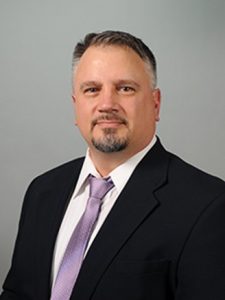
Jeremy is an expert in aerospace maintenance, manufacturing, modification, and maintainability. He specializes in advanced composite structural maintenance and advanced coatings. He recently completed the requirements to earn his PMT Cybersecurity UAS from Kansas State University. His other academic holdings are a Graduate Certificate in Unmanned Aircraft Systems Information Assurance and a Bachelor of Science Degree in Technology Management with a focus on Engineering Technology which is ABET accredited from Kansas State University, an Associate of Science in Aviation Maintenance and Professional Managers’ Certification from the Community College of the Air Force, and Project Manager Professional certification from Project Management Institute.
Jeremy currently serves as a Senior Principle Manufacturing Engineer at Northrop Grumman. He recently retired from the United States Air Force as a Senior Master Sergeant with 26 years of service. During this time, he served as a Structural Maintenance and Low Observables mechanic on F-111, F-15, F-16, and B-2 aircraft.
Dr. Mark J. Jackson (Co-Author)
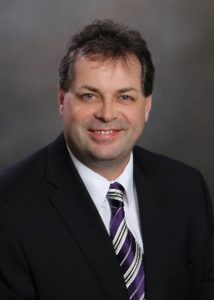
Doctor Mark James Jackson is the McCune and Middlekauff Endowed Professor and University Faculty Fellow at Kansas State University. Born in Widnes, Lancashire, England, in 1967, Doctor Jackson began his engineering career in 1983 when he studied O.N.C. part I examinations and first-year apprenticeship-training course in mechanical engineering. After gaining an Ordinary National Diploma in Engineering with distinctions and I.C.I. prize for achievement, he studied a degree in mechanical and manufacturing engineering at Liverpool Polytechnic and spent periods in industry working for I.C.I. Pharmaceuticals, Unilever Industries, Anglo Blackwells, Unicorn International and Saint-Gobain Corporation. After graduating with the Master of Engineering (M. Eng.) degree with Distinction under the supervision of Professor Jack Schofield, M.B.E., Doctor Jackson subsequently conducted research for the Doctor of Philosophy (Ph. D.) degree at Liverpool in the field of materials engineering focusing primarily on microstructure-property relationships in vitreous-bonded abrasive materials under the supervision of Professors Benjamin Mills and H. Peter Jost, C.B.E., Hon. F.R.Eng.. He was subsequently employed by Unicorn Abrasives’ Central Research & Development Laboratory (Saint-Gobain Abrasives’ Group) as materials technologist, then technical manager, responsible for product and new business development in Europe, and university liaison projects concerned with abrasive process development. Doctor Jackson then became research fellow at the Cavendish Laboratory, University of Cambridge, working with Professor John Field, O.B.E., F.R.S., and Professor David Tabor, F.R.S., on condensed matter physics and tribology before becoming a lecturer in engineering at the University of Liverpool in 1998. At Liverpool, he attracted a number of research grants concerned with developing innovative manufacturing processes for which he was jointly awarded an Innovative Manufacturing Technology Centre from the Engineering and Physical Sciences Research Council in November 2001. In 2002, he became associate professor of mechanical engineering and faculty associate in the Centre for Manufacturing Research, Centre for Electric Power, and Centre for Water Resources and Utilization at Tennessee Technological University (an associated university of Oak Ridge National Laboratory), and a faculty associate at Oak Ridge National Laboratory. Dr. Jackson was the academic adviser to the Formula SAE Team at Tennessee Technological University. At Tennessee Technological University, Dr. Jackson established the NSF Geometric Design and Manufacturing Integration Laboratory. Dr. Jackson collaborated with Nobel Laureate Professor Sir Harold Kroto, F.R.S., editing a book on ‘Surface Engineering of Surgical Tools and Medical Devices’ and a special issue of the International Journal of Nanomanufacturing on ‘Nanofabrication of Novel Carbon Nanostructures and Nanocomposite Films’. Dr. Jackson was appointed member of the United Nations Education, Scientific and Cultural Organization’s (UNESCO) International Commission for the Development of the ‘Encyclopedia of Life Support Systems’ Theme on ‘Nanoscience and Nanotechnologies’, (http://m-press.ru/English/nano/index.html), and still serves in this capacity. The first edition of the encyclopedia was published 2009 and second edition published 2018. In March 2017, the degree of Doctor of Science (D. Sc.) in mechanical engineering was conferred upon Dr. Jackson in absentia by congregation for sustained contributions made in the area of mechanical engineering and advanced manufacturing over a period of twenty years.
Research Technologist – Randall W. Mai (Co-Author)
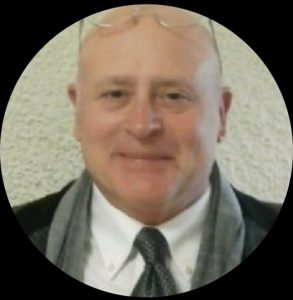
Randall grew-up on the family farm in rural Kansas near Tribune. He spent a large sum of his summers helping on the family farm that was established by his great-grandfather in 1929. Before graduating high school Randall was nominated to the United States Naval, Military, and Merchant Marine Academies by Congressman Keith G. Sibelius and Senator Bob Dole. Randall earned an A.S. degree in Mechanical Engineering Technology and a B.S. in Biology / Chemistry minor. Graduating Magna cum Laud. Randall has worked as an engineer in agriculture equipment mfg., an Analytical Chemist / Validation Analysis of computer / software validation for Abbott Labs and currently works as a Research Technologist for Kansas State University. He is now establishing himself in the Cybersecurity field as he stands on his knowledge of Computer / Software Validation experience gained within the Pharmaceutical field. He was responsible for leading the 21CFRpart11 program at the Abbott Labs facility in McPherson, Ks. and was also responsible for the validation of the Laboratory LIMS and Millenium32 software. The validation encompassed network security and disaster recovery.
Randall will complete a Master program at Kansas State University in May 2020 in Professional Masters of Technology with concentration in UAS and Cybersecurity.
Kurt J. Carraway, Col, USAF (Ret) [Foreword to Book 4]

After serving 25 years with the United States Air Force, retired Colonel Kurt J. Carraway is the Unmanned Aircraft Systems (UAS) Department Head and Executive Director of the Applied Aviation Research Center (AARC) at Kansas State University’s Polytechnic Campus. As Department Head, Carraway leads UAS faculty in the university’s UAS program, which includes a Bachelor of Science in Aviation Technology program, a UAS Minor and a UAS Certificate program. He also serves as a member of the graduate faculty on the campus. As Executive Director, Carraway provides strategic leadership in advancing Kansas State University’s UAS program goals. He directs the execution of research activities involving UAS through the AARC. Carraway also directs flight operations development and maturation of the UAS training program through direct supervision of the Flight Operations staff. He manages highly skilled UAS professionals that perform hundreds of UAS flights per year in civil airspace. He sets policies and procedures for unmanned flight operations. He serves as Principal Investigator (PI) on UAS activities through the AARC and is the University PI representative to ASSURE, the FAA’s UAS Center of Excellence.
Before arriving at Kansas State Polytechnic, Carraway was stationed at Camp Smith in Oahu, Hawaii where he served first as Joint Operations Director and then Division Chief of Current Operations, both for the U.S. Pacific Command. Carraway worked with the Global Hawk UAS, as an evaluator and instructor pilot, and later became commander of the Global Hawk squadron. Carraway established standard operating procedures and composed technical manuals for the military’s use of the Global Hawk.
A native of St. Louis, Missouri, Carraway received a Bachelor of Science in Mechanical Engineering at the University of Missouri Science and Technology in Rolla, prior to entering the Air Force. During his service, Carraway also completed a Master of Science in Systems Engineering at the Air Force Institute of Technology on the Wright-Patterson Air Force Base in Dayton, Ohio, and a Master of Arts in Management from Webster University in St. Louis, Missouri.
Bart Shields (Co-Author)

Bart Shields, BS in Computer Science-Scientific Option, MS in Computer Science-Thesis Option, Chief Technology Officer, Inventor, Co-founder
Bart Shields is serial entrepreneur, long-time innovator, deeply technical product architect, with over 25+ years of technical and engineering management. He has designed systems from concept to deployment for a wide variety of verticals, but has focused mainly on data communication, with multiple wireless communication products to his credit ranging from commercial wireless broadband routers to tactical radios for the U.S. government.
Bart is a highly innovative, technology expert, having created designed multiple MAC layer protocols, including the design and implementation of a Wi-Max like protocol (WCOPP) in the late 90’s and more recently, a Sensor Node MESH network MAC based upon Distributed Queuing. Bart has five patents to his credit, two for Wireless MACs based on Distributed Queuing and three for his recent cybersecurity protocol and cryptographic key management system, Autonomous Key Management (AKM).
Bart has built multiple engineering teams and entire departments from scratch, and overseen all aspects of engineering, including fabless ASIC design, communication systems algorithm development, and RF transceiver design and development.
Bart is an expert in embedded development and has spent his entire career in the design and development of embedded systems, including both mission and safety critical systems. Bart has focused the past six years entirely on cybersecurity and solving many of issues plaguing security today, with simple and elegant solutions built around his highly innovative technology, AKM.
Dr. Suzanne Sincavage (Co-Author)
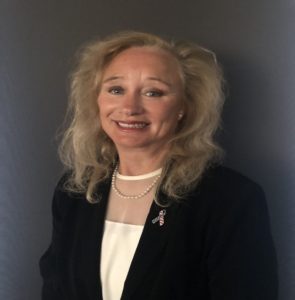
Executive Summary
On May 3rd , 2020 Dr Suzanne Sincavage was named Executive Director for the Institute for Biodefense Research (IBR). IBR is a nonprofit devoted to advancing the science of microbial forensics.
Dr Sincavage, a PhD in public health epidemiology, with a focus on biological terrorism preparedness and response, has led her own consultancy, IDIQ Inc. since 2008, focusing on CBRNE Subject Matter Expertise in facilitating and integrating innovative technologies that counter biological terrorism.
Dr Sincavage received her PhD in Public Health, Epidemiology with specialization in Biological Terrorism from Union Institute & University. Dr. Sincavage’s career encompasses 16 years of experience in the biotechnology and pharmaceutical industry serving as a field scientist supporting R & D, medical and regulatory affairs, and commercial operations covering therapeutic areas of infectious disease, virology, oncology, hematology, urology, and immunology.
Dr Sincavage is SME for the National Reconnaissance Office (NRO), Intelligence and National Security Alliance (INSA) and DHS. She has held senior management positions in Watson Pharmaceuticals, Department of Medical & Regulatory Affairs; Wyeth-Ayerst Laboratories, G.D. Searle; Hoffman-La Roche Laboratories; Sacred Heart Medical Center and for fun the La Jolla Symphony & Chorus.
Dr Sincavage holds certifications:
SAM (CCR); SBA 8 (m)
DD 2345 Military Critical Technical Data Agreement
DTIC
DTIC STINFO Manager
Counterterrorism
InfraGuard – Infrastructure Liaison Officer
ONR – Counterterrorism
Committees:
NDIA Legislative Committee
NDIA National Small Business Conference
NRO ASP Industry Working Group
INSA Acquisition Management Council
USGIF Small Business Working Group
WOSB 8(m) Working Group, SPAWAR HQ, San Diego

